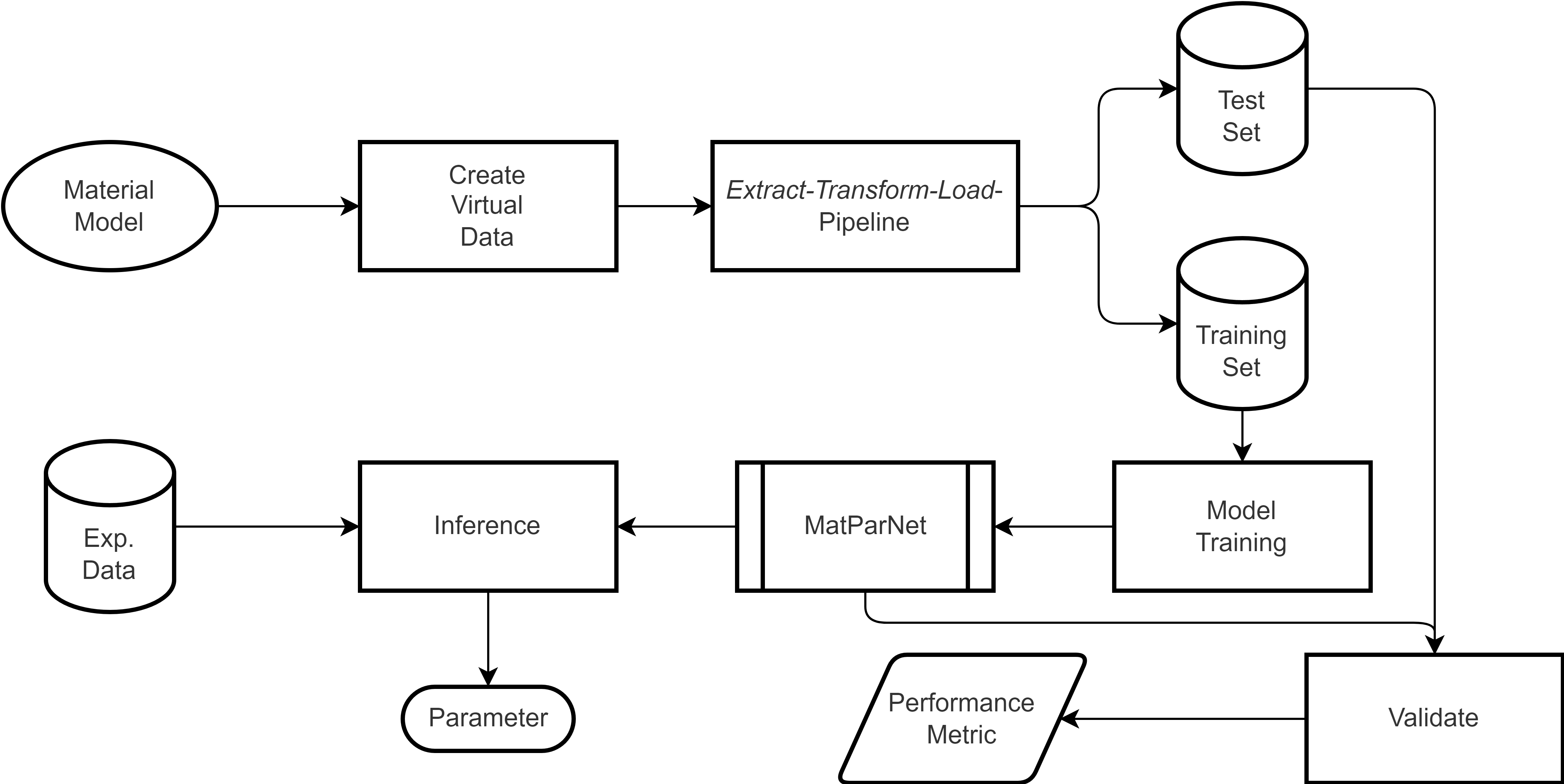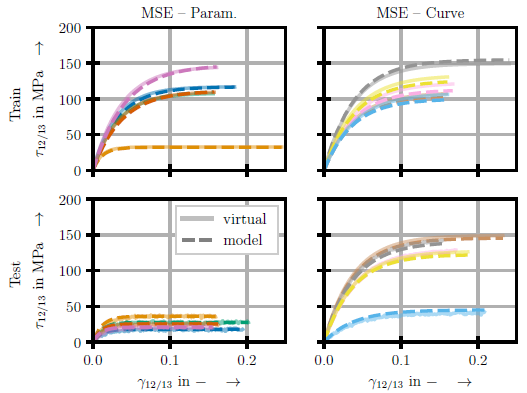Highly Efficient Determination of Material Modelling Parameters
Title: Highly efficient determination of material modelling parameters using machine learning
Project duration: ongoing
Research Area: Engineering and Business
Fiber reinforced plastics (FRPs) can exhibit strongly non-linear deformation behavior. In order to accurately describe this, increasingly complex material models capturing intricate non-linear effects are being used. Such models generally require a large number of parameters, which have to be determined from experiments. In this work, we investigate how machine learning techniques can be employed to externalize the knowledge and time intensive process of material parameter identification.
Aims
The safe use of FRP and thus the exploitation of their potential in lightweight engineering, necessitates accurate and reliable predictions of their behavior. In order to lower the initial application hurdle, we develop a methodology that predicts governing parameters based on experimental results. These predictions can be used in combination with existing constitutive models to asses the FRP’s behavior under arbitrarily complex loading conditions and thus enable a robust dimensioning process.

Problem
The process of parameter identification currently requires an in-depth understanding of the model at hand as well as extensive additional knowledge of the experimental evaluation procedure. This impedes the usage of complex or novel, better suited and more efficient material models which would allow for more accurate assessments of loading scenarios and thus enable weight savings.

Technology
For the entire training, we are solely relying on artificial training data generated using the target material model. A convolutional neural network (CNN) based model architecture is trained to predict material modeling parameters based on the input of stress-strain-curves. The optimal model architecture and training setup are determined by hyperparameter optimization (HPO). The final CNN is capable of predicting model parameter combinations from experimental stress-strain curves which lead to excellent agreement between experimental and associated model curve.

Outlook
The developed methodology will be extended from its current capability of analyzing stress-strain-behavior to also incorporate time information. This will allow to capture key aspects such as hystereses in the loading conditions as well as viscous material behavior.
Publications
- Winkler, P., Koch, N., Hornig, A., Gerritzen, J. (2021). OmniOpt – A tool for hyperparameter optimization on HPC. In H. Jagode, H. Anzt, H. Ltaief, & P. Luszczek (Hrsg.), High Performance Computing – ISC High Performance Digital 2021 International Workshops, 2021, Revised Selected Papers (S. 285-296). Springer, Berlin [u. a.]. https://doi.org/10.1007/978-3-030-90539-2_19
- Gerritzen, J., Hornig, A., Gude, M. (2023): Machine Learning based Determination of Material Model Parameters for the Out of Plane Shear Behavior of Fiber Reinforced Plastics. Euromech Colloquium 632 on Data-driven modeling of porous, composite and polycrystalline microstructures for predicting their mechanical and transport properties. Ulm, Germany, 20-22.09.2023.
- Gerritzen, J.; Hornig, A.; Gröger, B.; Gude, M. A Data Driven Modelling Approach for the Strain Rate Dependent 3D Shear Deformation and Failure of Thermoplastic Fibre Reinforced Composites: Experimental Characterisation and Deriving Modelling Parameters. J. Compos. Sci. 2022, 6, 318. https://doi.org/10.3390/jcs6100318
Team
Lead
- Prof. Dr. Maik Gude
- Dr. Andreas Hornig
Team Members
- Johannes Gerritzen
- Peter Winkler
Partners




